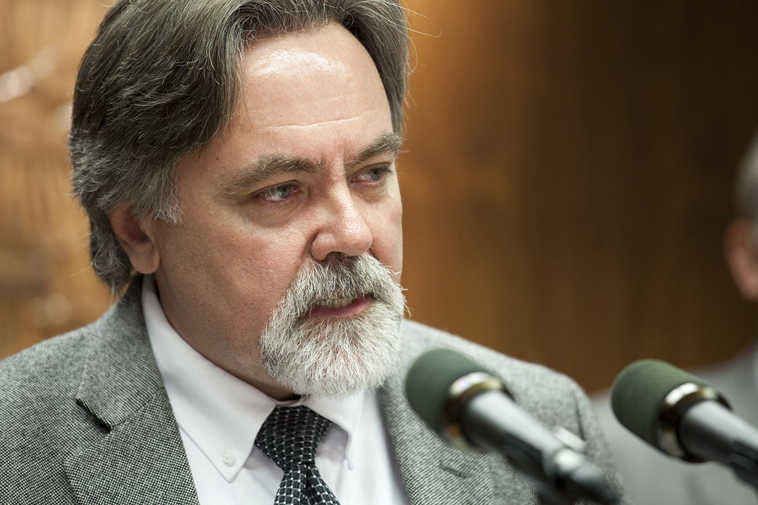JUNEAU — Alaska Gov. Bill Walker said he is willing to call the Legislature into a special session if lawmakers don’t pass any revenue proposals to help close a multibillion-dollar budget deficit.
His push for more income comes as the state’s Department of Revenue on Monday released a forecast showing another $300 million drop in funding for the current year and a $564 million drop for 2017.
“It’s important that we have legislation passed this session or a special session to make sure that we have taken away the uncertainty,” Walker said during a news conference on the forecast.
As lawmakers and the governor grapple with ways to raise revenue as the budget deficit deepens, the department’s revenue projections show a state budget that’s not likely to rebound soon.
The department projects low oil prices to continue for the next five years. It is not forecast to reach $60 a barrel until 2021.
For 2016, the forecast shows the state’s budget deficit is now at $4.1 billion.
Walker’s budget director Pat Pitney said the drop in revenue would have to be paid for by the state’s savings. “It’s just more being pulled from the constitutional budget reserve, depleting our savings faster,” she said.
To close the budget deficit, Walker has proposed tax increases, reinstituting a personal income tax and a restructured use of Alaska Permanent Fund earnings, a move that would change how the annual dividends most Alaskans receive are calculated.
During a Senate Majority news conference on Monday, Republican senators said they were moving through the governor’s tax proposals, but did not say which, if any, were likely to pass through the body.
Sen. Peter Micciche, R-Soldotna, said senators had worked through cuts first and would now take up new revenue measures.
“In order to survive this gap, everyone is going to have to help pitch in a little bit,” Micciche said.
Historically, between 80 to 90 percent of the state’s unrestricted revenue has been generated by oil revenue. It is now forecast to be between 55 to 60 percent.
Walker said the budget situation is an opportunity to diversify the economy. “We have reached a point in our state’s history that we need to be looking sort of beyond oil,” he said.
The forecast will not be finalized until April, when the state gets its oil and gas production tax returns. Any revisions will be primarily to the oil and gas production tax and likely won’t change it by more than $100 million, Assistant Chief Economist Dan Stickel said.

